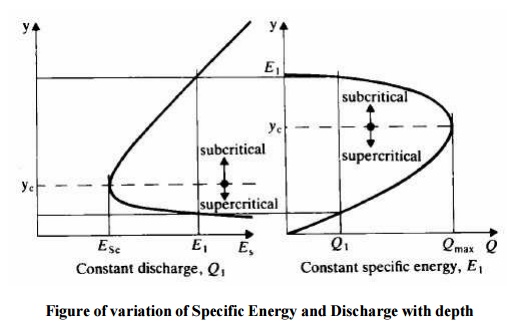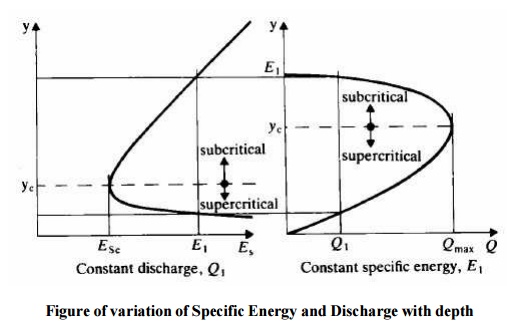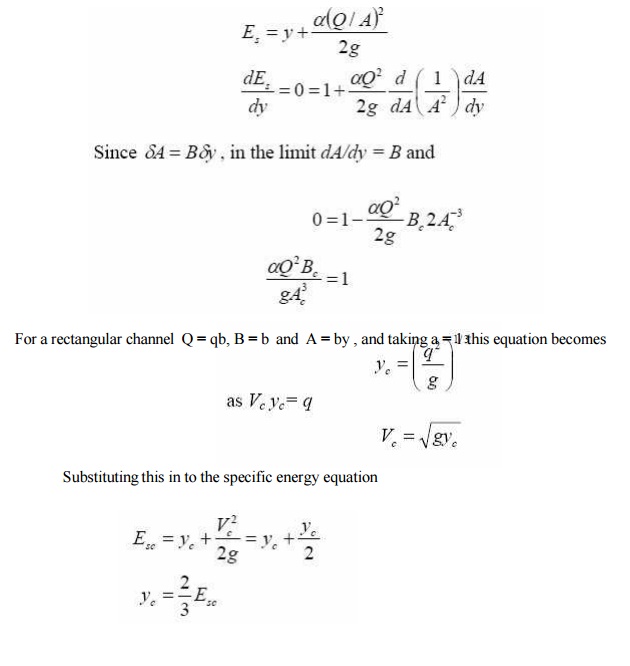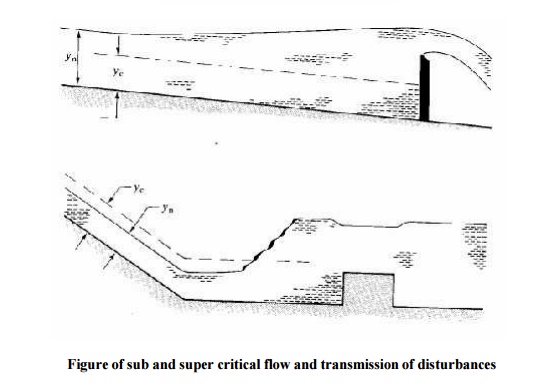Chapter: civil : Applied Hydraulic Engineering: Rapidly Varied Flow
Critical , Sub-critical and super critical flow

Rapidly Varied Flow
Critical , Sub-critical and super
critical flow
The
specific energy change with depth was plotted above for a constant discharge Q,
it is also possible to plot a graph with the specific energy fixed and see how
Q changes with depth. These two forms are plotted side by side below.

From
these graphs we can identify several important features of rapidly varied flow.
For a fixed discharge:
1.
The specific energy is a minimum, E sc ,
at depth y c , This depth is known as critical depth .
2.
For all other values of E s there are two
possible depths. These are called alternate depths. For
subcritical flow y > yc
supercritical flow y < yc
For a fixed Specific energy
1.
The discharge is a maximum at critical depth, yc
2.
For all other discharges there are two possible depths of flow for a particular Es
i.e. There is a sub-critical depth and a
super-critical depth with the same Es
An
equation for critical depth can be obtained by setting the differential of
E to zero:


Related Topics